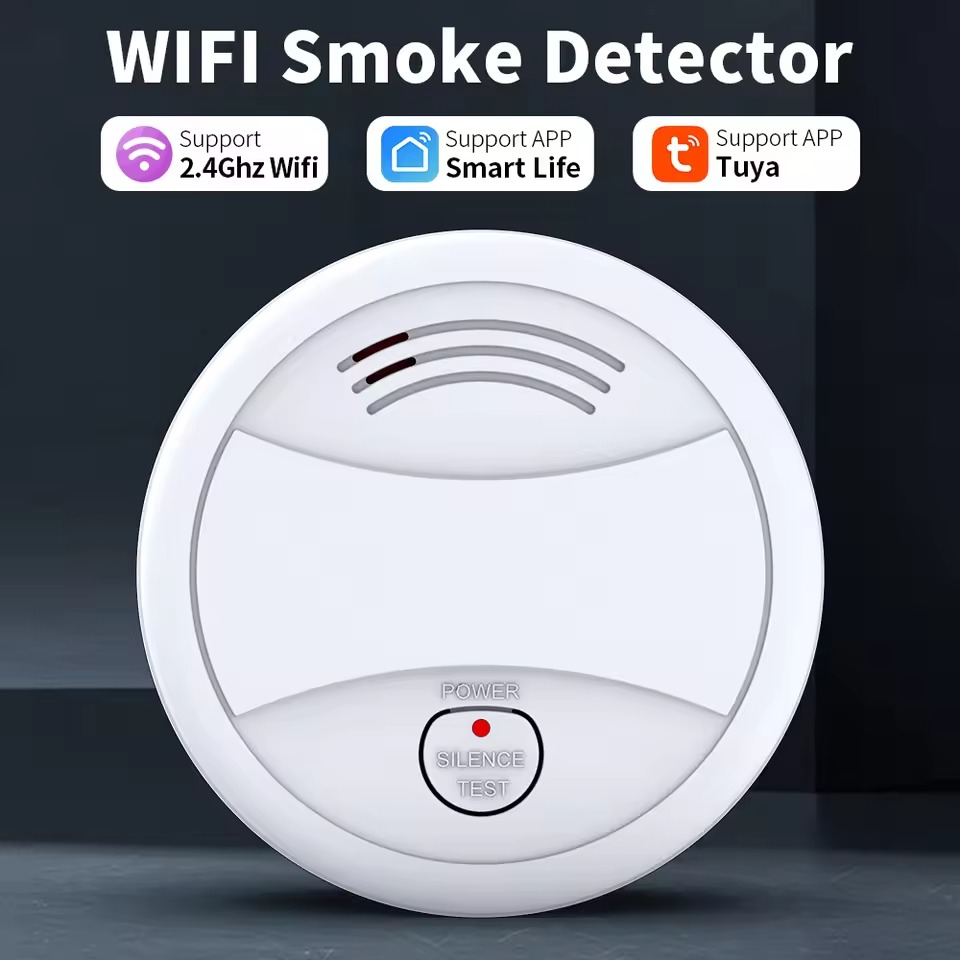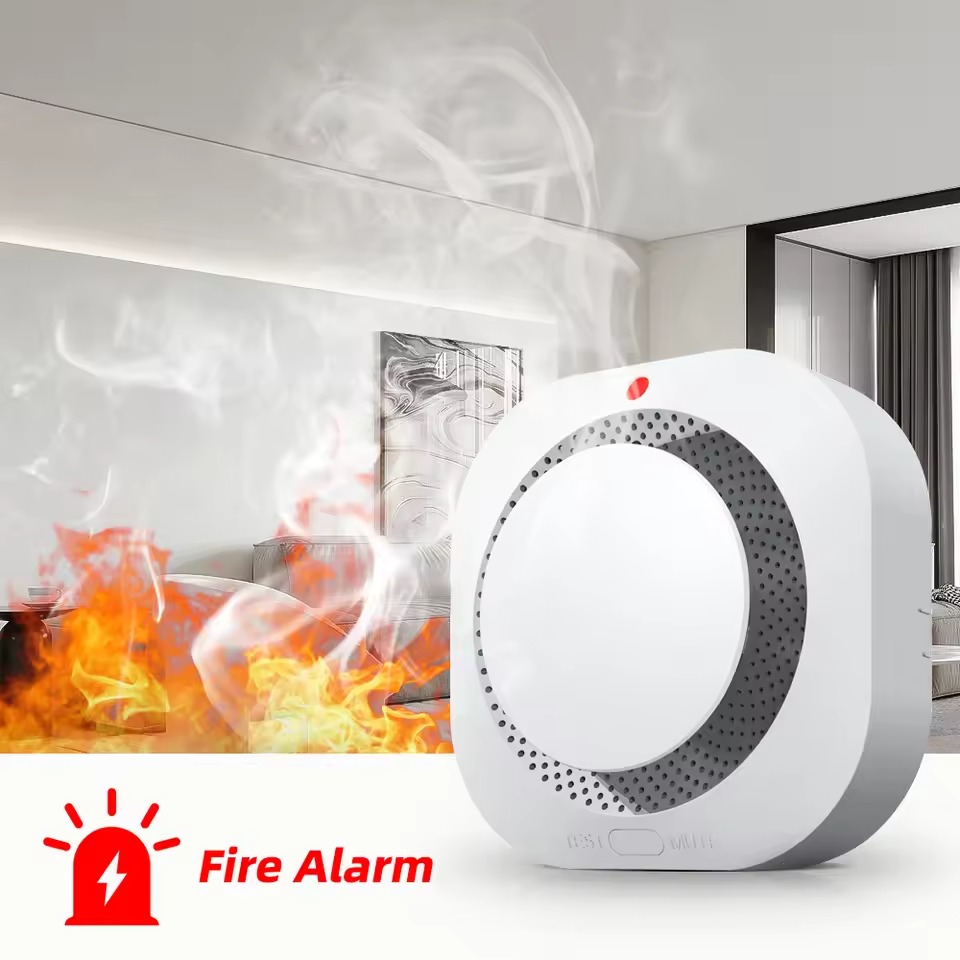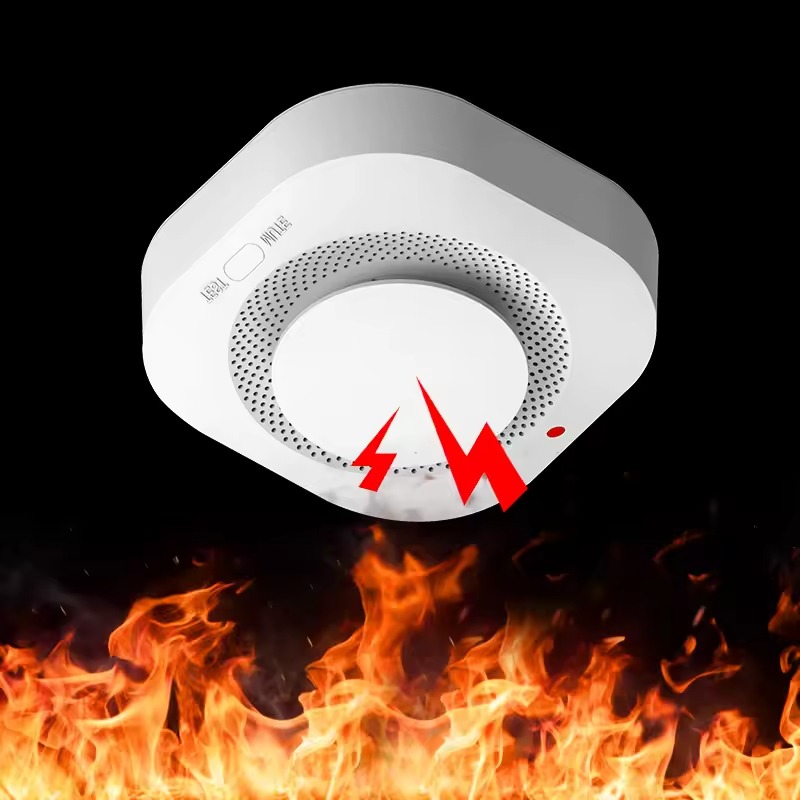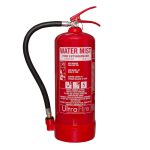The Types of Smoke Alarms and Their Power Sources
Having a smoke alarm that won’t stop going off can be a major disturbance. To better understand why this happens, let’s look at the different types of smoke alarms and their power sources. There are mainly three types:
- Smoke Alarms with Replaceable Batteries: These are the most basic type. They rely on standard batteries that need to be changed periodically.
- Smoke Alarms with Long-Lasting Lithium Batteries: These alarms have built-in batteries designed to last for the lifetime of the alarm, generally around 10 years.
- Hard-Wired Smoke Alarms: These are connected to your home’s electrical system and are considered the most reliable. They usually include backup batteries to ensure functionality during a power outage.
Each type has its own set of maintenance requirements, and understanding these can help pinpoint why your hard-wired smoke alarm won’t stop going off. Hard-wired alarms, while reliable, can still beep persistently due to issues with their backup batteries or other factors, which we will explore in further sections.

Reasons Behind the Persistent Beeping of Smoke Alarms
Understanding why your hard-wired smoke alarm won’t stop going off is crucial for addressing the issue effectively. Several factors could cause this annoying problem, ranging from safety alerts to maintenance needs.
Fire Detection
The primary role of a smoke alarm is to warn you of potential fires. If there’s a rise in smoke levels, your alarm will sound to alert you. Always treat this beeping seriously and check for signs of fire. Fire detection is a critical function, so ensuring your smoke alarm is working correctly is vital.
Battery Replacement Needs
Even though hard-wired smoke alarms use your home’s electricity, they still have backup batteries. These batteries may cause the alarm to beep when they need replacement. If the persistent beeping starts suddenly, consider checking and potentially replacing the backup batteries to resolve this issue.
Processor Errors and Wiring Issues
Sometimes, the internal electronics of a smoke alarm, including the processor, can malfunction. Wiring issues may also lead to false alarms or continuous beeping. In such cases, a professional might need to inspect and possibly repair the alarm system.
Environmental Factors and False Alarms
Various environmental factors can cause false alarms. For example, steam from a shower or fumes from cooking might trigger your alarm. Also, excessive dust or insects inside the alarm can cause it to beep. Regular cleaning and situational awareness can reduce these false alarms.
First Response to a Beeping Smoke Alarm
When your hard-wired smoke alarm starts beeping, it’s vital to act promptly and wisely. Here’s what you should do first.
Assessing the Situation
Begin by staying calm and checking for signs of fire, such as smoke or flames. If there’s no fire, consider other reasons for the beeping like battery issues or environmental triggers. Do not ignore the alarm, as it’s designed to protect you.
Resetting the Alarm
If there’s no immediate threat, try resetting the alarm. You can usually do this by pressing the reset button. If beeping persists, check the backup batteries. This might involve replacing them or ensuring they’re properly installed. After resetting, if your hard-wired smoke alarm won’t stop going off, further troubleshooting may be necessary.

Battery Replacement Tips for Hard-Wired Smoke Alarms
Handling the persistent beeping from your hard-wired smoke alarm can be simple with the right steps. Backup batteries play a significant role, even though these alarms are connected to your home’s electrical system. Understanding how to maintain these batteries can prevent unnecessary beeping and ensure your alarm functions in emergencies. Let’s delve into the essential practices for battery maintenance and replacement.
The Role of Backup Batteries
Backup batteries are crucial for hard-wired smoke alarms. They provide power when your home’s electricity fails. This ensures that the smoke alarm continues to operate during power outages, which is vital for safety. However, these batteries can wear out and cause the alarm to beep frequently, signaling a need for replacement. Regular checks and timely replacement of these batteries are essential steps in maintaining your smoke alarm’s functionality.
Regular Battery Maintenance Recommendations
- Check Batteries Regularly: Inspect the condition and expiration date of backup batteries every six months. This can prevent unexpected beeping.
- Replace Batteries Annually: Even if the batteries haven’t reached their end of life, replacing them yearly can ensure reliability. It’s a small price for ensured safety.
- Choose Quality Batteries: Opt for long-lasting, high-quality batteries. They might cost more, but the reliability they offer justifies the expense.
- Follow Manufacturer’s Guidelines: Each smoke alarm model might have specific battery requirements or instructions. Always refer to the manufacturer’s manual when replacing batteries.
- Test After Replacement: Once you replace the batteries, test the smoke alarm to verify that it’s working correctly. This can confirm that the new batteries are functioning as expected.
By adhering to these maintenance tips, you can reduce the frequency of frustrating beeping and maintain a smoke alarm that effectively protects your home.
Troubleshooting Non-Replaceable Lithium Battery Alarms
When it comes to alarms with non-replaceable lithium batteries, troubleshooting becomes a bit different. These alarms are designed to be maintenance-free for around 10 years, after which they often need to be replaced rather than repaired. But what should you do when these alarms start to chirp or beep incessantly?
Here are a few steps to troubleshoot lithium battery alarms:
- Identify the Beep: A chirp every minute might signal the end of the alarm’s life.
- Test the Alarm: Use the test button to ensure the alarm can still function.
- Reduce Interferences: Ensure no dirt, dust, or insects affect the alarm’s sensor.
- Muffle the Sound: While waiting for a replacement, use temporary measures to dampen the beeping.
Recognizing the Lifespan of Smoke Alarms
Lithium battery smoke alarms don’t last forever. They usually have a lifespan of a decade. Always check the manufacture date printed on the alarm. If it’s close to 10 years, be ready to replace it. Acknowledging the lifespan helps you plan for replacements and maintain your home’s safety.

Disposal of Old Smoke Alarms
After recognizing an alarm is past its prime, proper disposal is crucial. Never throw an alarm in the trash. Contact local waste management to find out how to dispose of alarms responsibly. They often have specific guidelines or programs for electronics and battery-operated devices. This ensures that potentially hazardous materials are handled safely.
Addressing Beeping in Connected Hardwired Smoke Alarm Systems
When your hard wired smoke alarm won’t stop going off, it might involve the entire system. Interconnected smoke alarms can all start beeping if one unit has issues. Here’s how to get a handle on this situation:
Identifying the Malfunctioning Unit
Trouble with one can mean trouble for all. Find the unit that’s causing the beeping. Look for a red or green indicator light that’s out of sync with the rest. Often, this unit will have a different blinking pattern. This is your likely troublemaker. Isolate it from the rest and see if the beeping stops.
How to Reset or Power Cycle the System
If you can’t spot the rogue alarm, try a full system reset. Here’s what to do:
- Turn off the power at the circuit breaker.
- Disconnect each alarm from the power source.
- Remove backup batteries if they’re installed.
- Press and hold the test button for 15-20 seconds.
- Reconnect the power and batteries.
- Turn the power back on at the circuit breaker.
A system reset can often fix the problem. If not, you may need to replace the faulty unit.
Last Resort Solutions for Non-Stop Beeping
If your hard wired smoke alarm won’t stop going off despite all attempts, it’s time for last resort measures. These steps should only be used when other solutions fail. Safety must come first, so ensure the absence of a real fire first.
Disconnecting and Safely Removing Alarms
When beeping persists, disconnecting the alarm is a final step. Turn off your home’s power. Carefully unclip the alarm connector. This takes it off the network. Remove any back-up batteries. This should halt the beeping. If it’s a stand-alone unit, remove it from the ceiling or wall. Handle the alarm with care, to avoid damaging its components. After removal, check the manufacture date. If it’s old or damaged, replace the alarm. Reconnect the alarms without the troubling unit. Test the system to ensure others work right.
If the removed alarm is under warranty, contact the manufacturer. They may offer a replacement or a fix. For those past warranty, it’s time to buy a new alarm. Make sure the new one meets current safety standards. Install it as the manual instructs. Test it to confirm proper operation.
Remember, regular maintenance and prompt battery replacement can prevent non-stop beeping. However, when beeping does not stop, these steps can restore peace and safety to your home.
When to Replace Your Smoke Alarms
Knowing when to replace your smoke alarms is crucial for maintaining safety. As these devices age, their efficiency can diminish, which can compromise your home’s safety.
Signs Your Smoke Alarms Need Replacement
Several signs indicate the need for a new smoke alarm:
- Persistent Beeping: If the alarm continues to beep after you’ve replaced the batteries and reset it, it might be malfunctioning.
- Expired Alarms: Check the manufacture date on the back of your smoke alarm. Replace the alarm if it’s near or past the 10-year mark.
- Frequent False Alarms: If your smoke alarm frequently triggers false alarms, its sensors might be failing.
- Physical Damage: Any visible signs of damage, such as cracks or corrosion, signal a need for immediate replacement.
Importance of Functioning Fire Alarms
Functional fire alarms are essential for the safety of your home. They provide early warning in the case of a fire, allowing you and your family ample time to evacuate. Installing and maintaining fire alarms reduce the risk of fatal injuries in home fires significantly.
Always ensure your smoke alarms are in working order and replace them according to the manufacturer’s guidelines or as soon as you notice any of the signs mentioned above.


